H.M.S. Pinafore
Wilton’s Music Hall • 16 March - 9 April 2022
Despite Gilbert & Sullivan’s H.M.S. Pinafore having been on the radar ever since my days attending the school ‘drama club’ as a teenager, it seems surprising now that this production at Wilton’s Music Hall would actually be my first time seeing this comic opera. What’s probably not so surprising is that it just happens to be Sasha Regan’s all male version that has allowed me to finally tick the box marked ‘seen’… or maybe I shouldn’t be quite so quick with my pen as, throughout this excellent production, I couldn’t help thinking there was possibly an extra level of appreciation I was missing out on having not seen one of the countless, more ‘traditional’ versions beforehand. That’s not to say there wasn’t plenty for a ‘Pinafore virgin’ like me to enjoy, as this production not only tries to please both the first-timers and the more seasoned Gilbert & Sullivan aficionado’s in the audience… it succeeds. Not bad for a comic opera that was first performed in 1878 and that, with this inventive re-imagining, speaks as eloquently to a modern audience as it did to those watching all those years ago, albeit now viewed from a slightly more contemporary perspective.
Originally conceived to shine a spotlight on the British obsession with social status, H.M.S. Pinafore tells the story of Josephine, (Sam Kipling) the daughter of Captain Corcoran (Juan Jackson), who is in love with lower-class sailor Ralph Rackstraw, (Danny Becker). Despite her father’s intentions for her to marry the First Lord of the Admiralty, Sir Joseph Porter, (David McKechnie), all is not as it may seem, and through an unexpected twist of fate, this already complicated situation finds itself turned on its head.
With the class divide still being at the centre of this story, (which, I have on good authority, is being performed true to the original in both libretto and score, deftly played here on piano by musical director Ashley Jacobs), it’s difficult to view Regan’s production today without bringing something of the current discourse around gender identity to the table… after all, the Josephine in this H.M.S. Pinafore is a male actor, playing the part of a woman, who is completely in love with a man. “I have a heart, and therefore I love” says Sam Kipling in the role, and whether it is the directors intention or not, there suddenly seems to be a lot more to unpack in this production than could ever have been imagined by Mssrs Gilbert & Sullivan… and I’m totally here for it.
That being said, it’s certainly not a theme worn on the show’s sleeve, and when we get to the ‘female’ relatives of Sir Joseph Porter performing ’Now Give Three Cheers’, the intention is little more than to provide a purely entertaining moment of high-camp fun, all of which is equally well received by an enthusiastic audience. As well as this transposition of the sexes, the operetta itself is also relocated onto a World War II battleship, the action taking place below decks in the crew quarters where a procession of strapping vest-wearing sailors perform physical exercise routines instructed by Juan Jackson’s engaging Captain. After this initial burst of eye-candy, things soon become just as impressive on the ear as they do on the eye and, one by one, each lead reveals a powerful, pitch-perfect voice that would be capable of filling an auditorium twice this size. Sam Kipling’s searing falsetto is especially impressive and, once the audience manages to marry the voice with the actor, (the first few notes coming as something of a genuine surprise), it’s a sound that remains little short of captivating in both tone and strength, Act 1 ending with a duet sung with ‘her’ love, Ralph Rackstraw, Danny Becker matching Kipling’s powerful delivery note-for-note.
Despite thinking there’s little to worry about in terms of spoilers with a 144 year old comic opera, I’ve decided to err on the side of caution, operating under the assumption that I can’t be the only person not to have had the pleasure of seeing H.M.S. Pinafore before. (Am I?). Suffice to say that this is just about as good as it gets by way of an introduction. (Regan having also directed the highly enjoyable 2019 Union Theatre production of Whistle Down The Wind starring Jack The Lad featured actor George Hankers). Ryan Dawson Laight’s set is simple but effective, and with an inventive use of the venues impressive space, this production feels almost immersive at times. A two-tier stage helps bring added depth to Lizzi Gee’s dynamic choreography, and Ben Bull’s lighting gives all of the above a rich sheen throughout.
“Things Are Seldom As They Seem”, sings a hilarious Scott Armstrong in the role of Little Buttercup, words that resonate on many different levels in Sasha Regan’s unmissable all male production.
★★★★★

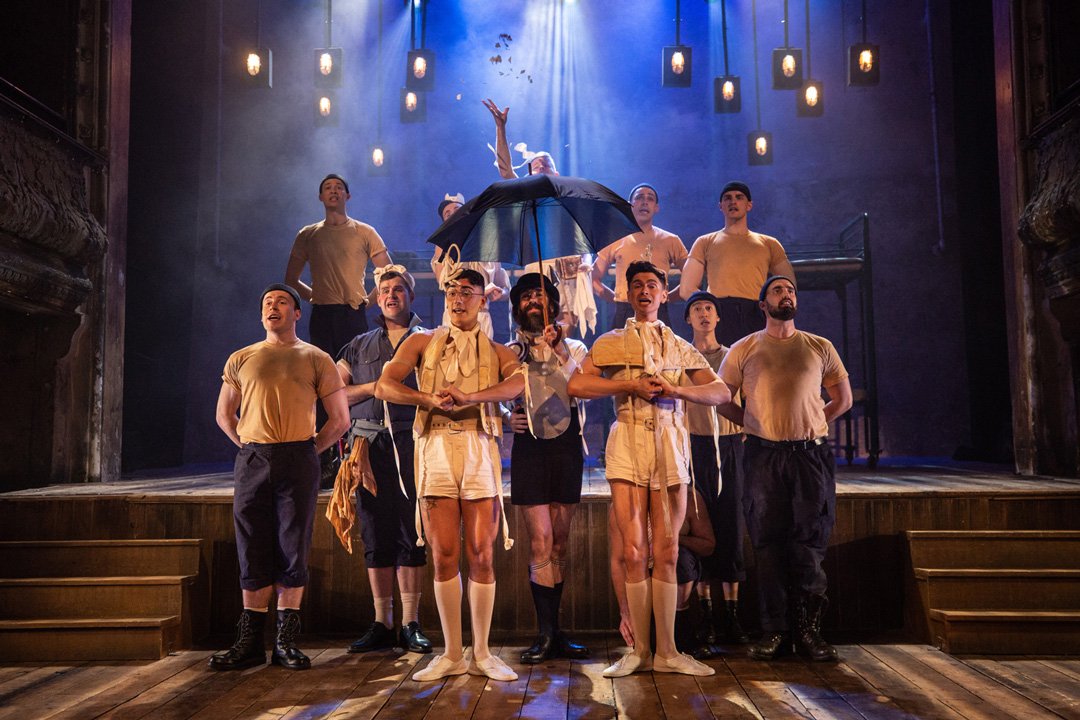
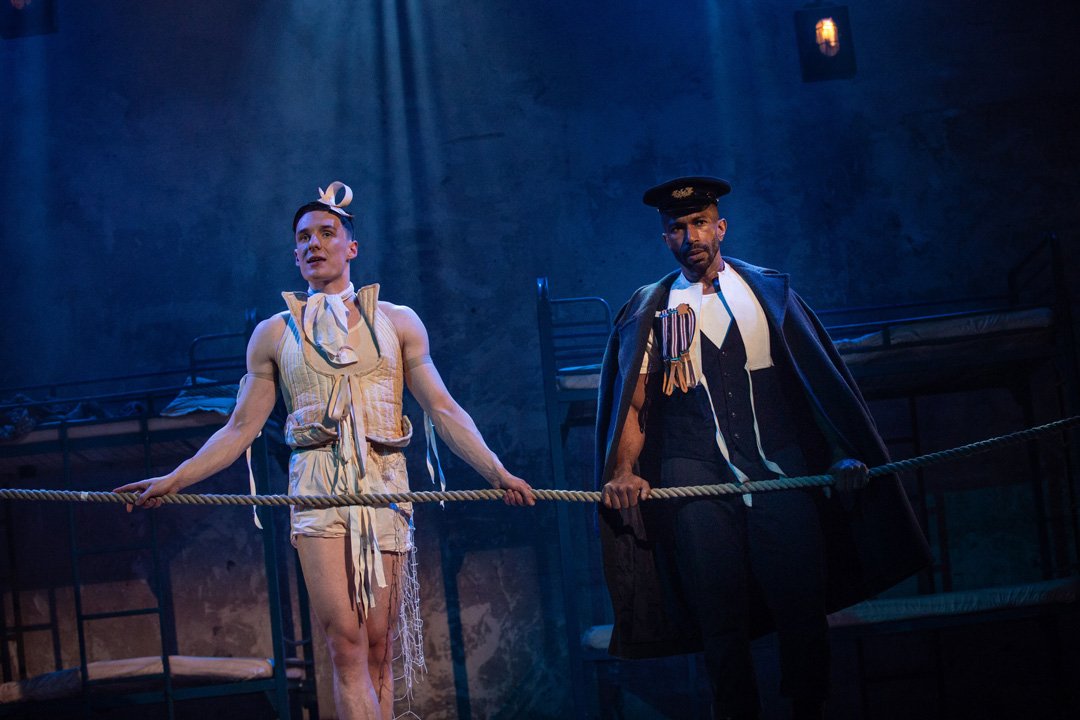



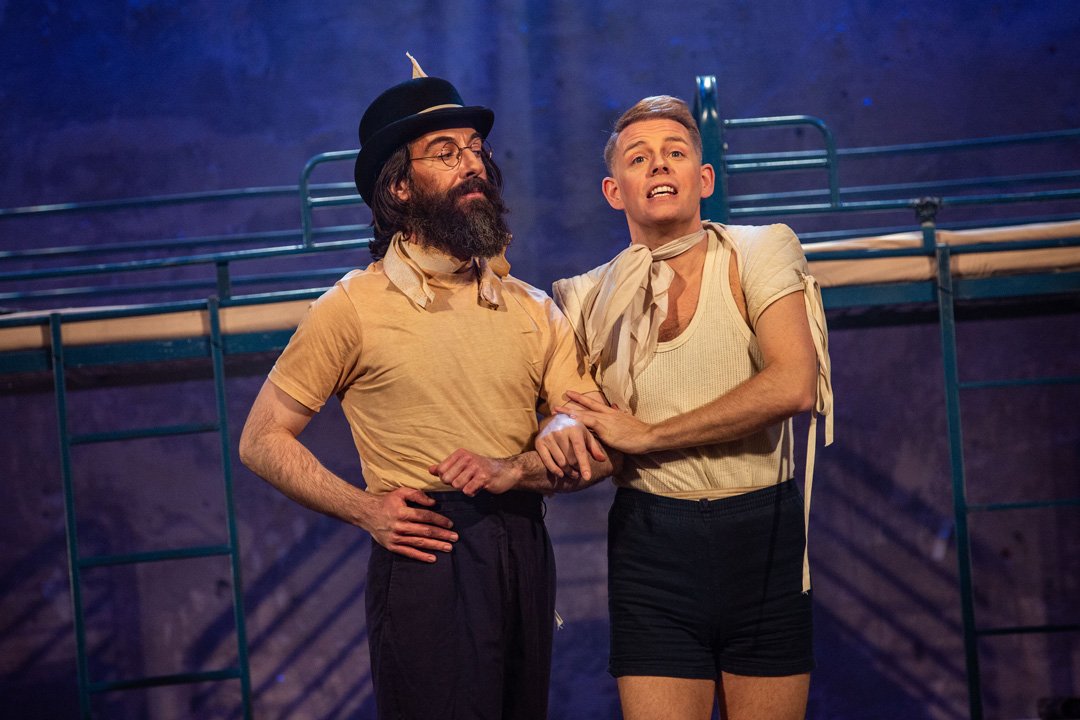
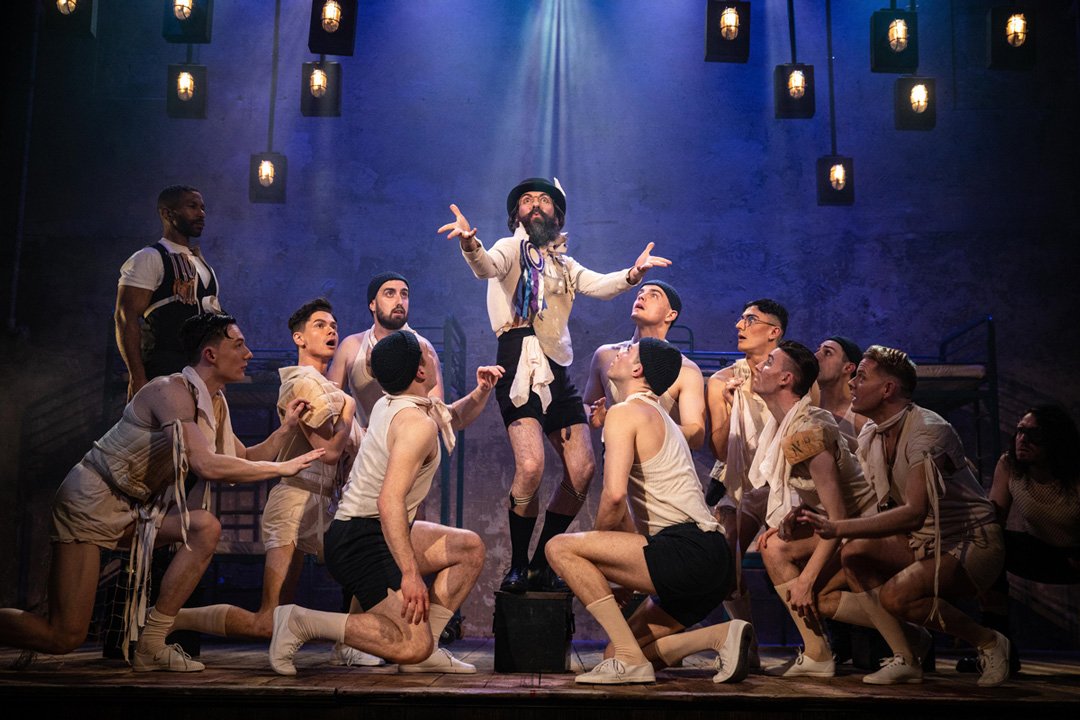
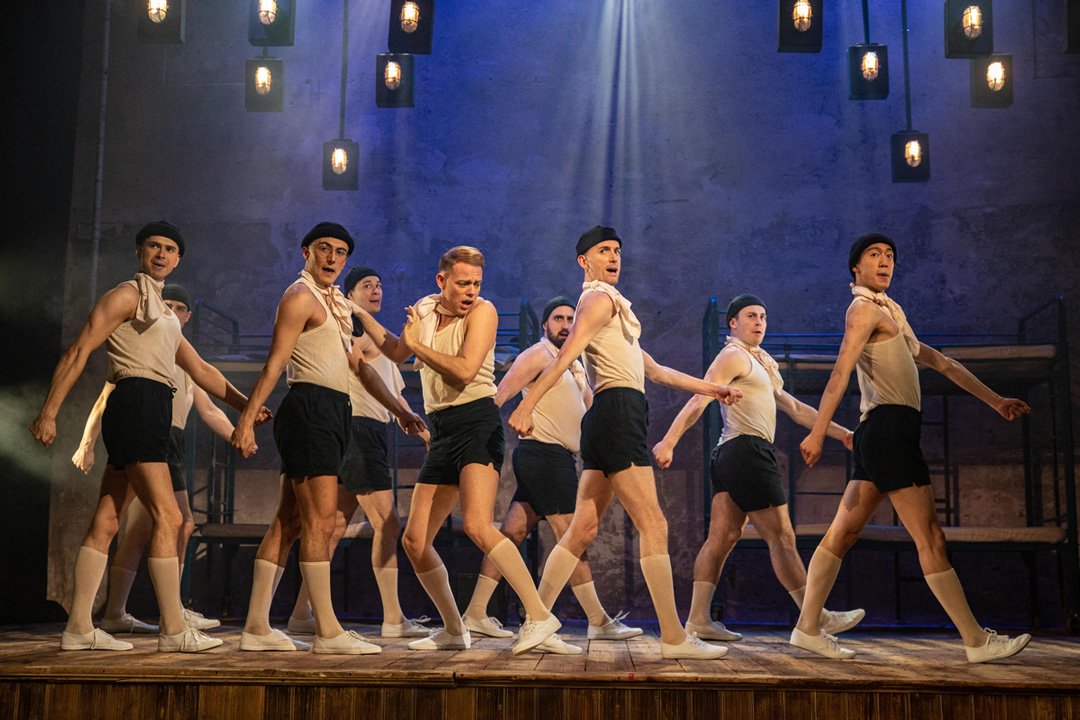
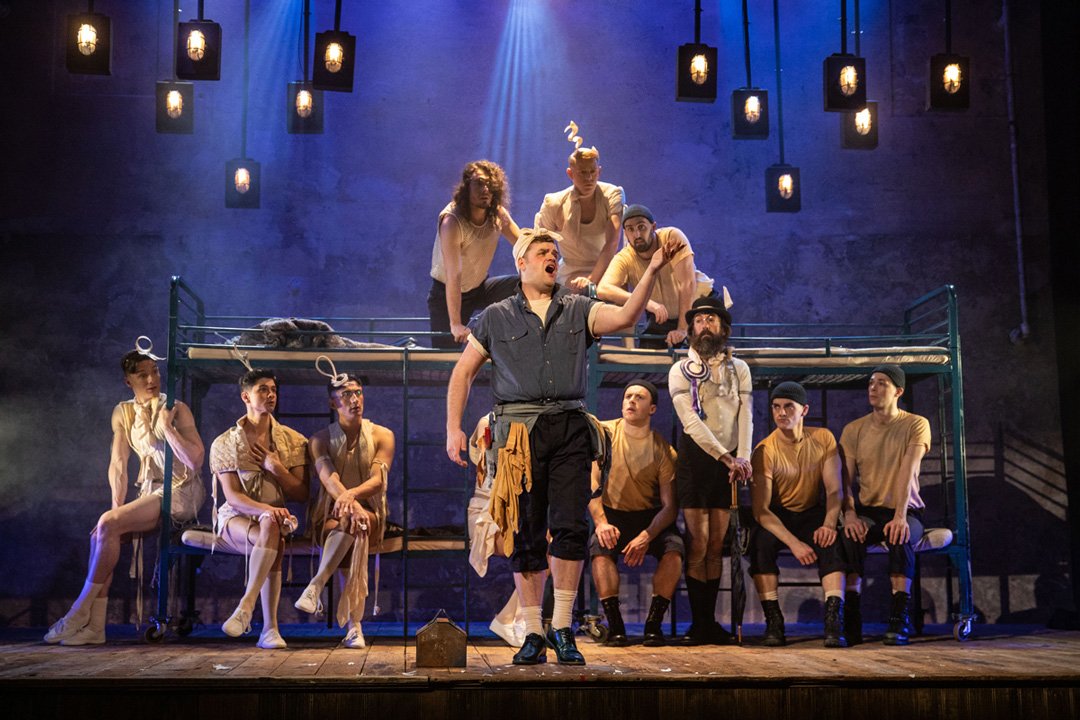
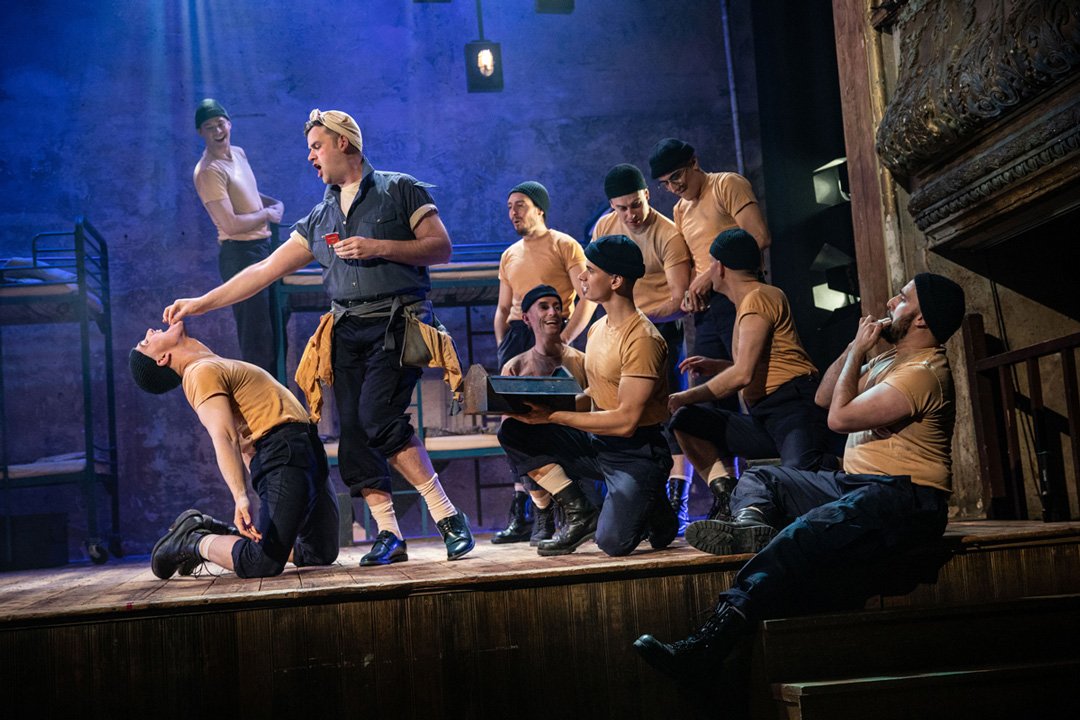
review: Simon J. Webb
photographs: Mark Senior
